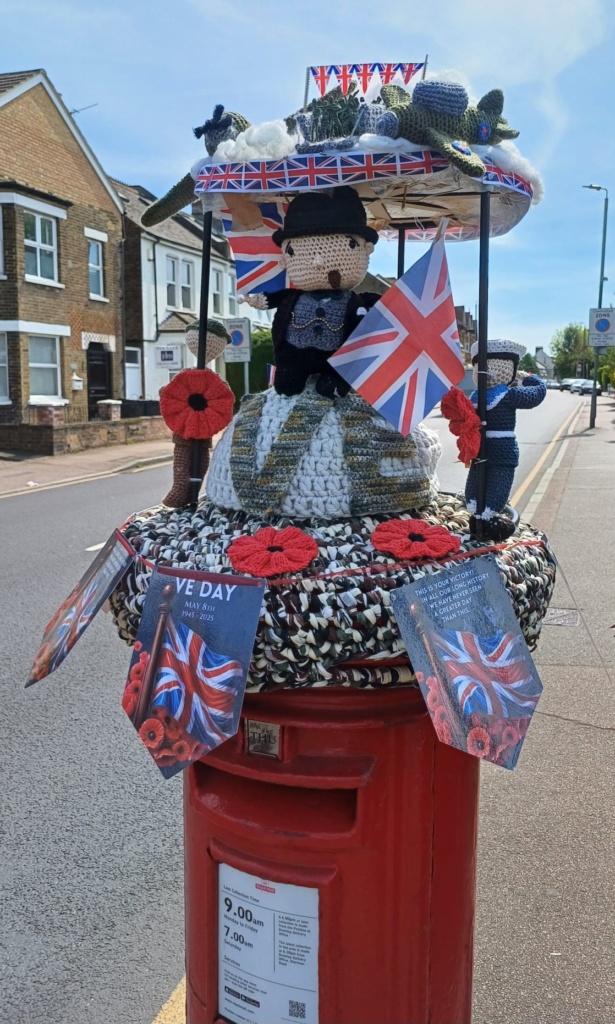
By Iyamide Thomas, Historical Researcher and African Voice Ambassador
On 8th May 2025, the Nation commemorates the 80th anniversary of ‘Victory in Europe’ (VE ) Day, when the German Army offered a complete and unconditional surrender to the Allied Forces, ending World War 2 (WW2) in Europe. (The war completely ended in August 1945 when Japan surrendered). Five years ago, I wrote about six West African men who had volunteered to join the Royal Air Force (RAF) as part of Britain’s WW2 effort (https://africanvoiceonline.co.uk/ve-day-75-africans-too-must-be-celebrated/). On this 80th anniversary of VE Day, I showcase the largely untold stories of Black women who contributed to WW2, in particular the stories of Sierra Leonean ‘ Krio’ descendants Irene Ighodaro and Lauretta Boston. (The ‘Krios’ are descendants of previously enslaved and free peoples who the British resettled in Sierra Leone from 1787).
Irene Ighodaro.
Irene Ighodaro (nee Wellesley-Cole) was born in Freetown, Sierra Leone in May 1916. Irene married Samuel Ighodaro a Nigerian lawyer in 1947 and spent much of her life in Nigeria. (She was the sister of Dr Robert Wellesley-Cole, a trailblazer who in 1944 was the first African Fellow of the Royal College of Surgeons in England and who wrote ‘Kossoh Town Boy’ studied in several African secondary schools). In 1938, Irene entered Newcastle Medical School and in1944 became the first Sierra Leonean woman to qualify as a doctor. Shespecialised in gynaecology. Irene Ighodaro participated in Britain’s Second World War effort in Newcastle by treating German Prisoners of War casualties as well as British soldiers. She worked as a house officer at the Royal Victoria Infirmary from 1944 -5 and whilst there also worked on the decontamination squad. In 2024, Dr Irene Ighodaro was among a selection of African women who worked for the British Health Service who were celebrated on a mural by Guy’s Hospital in London.
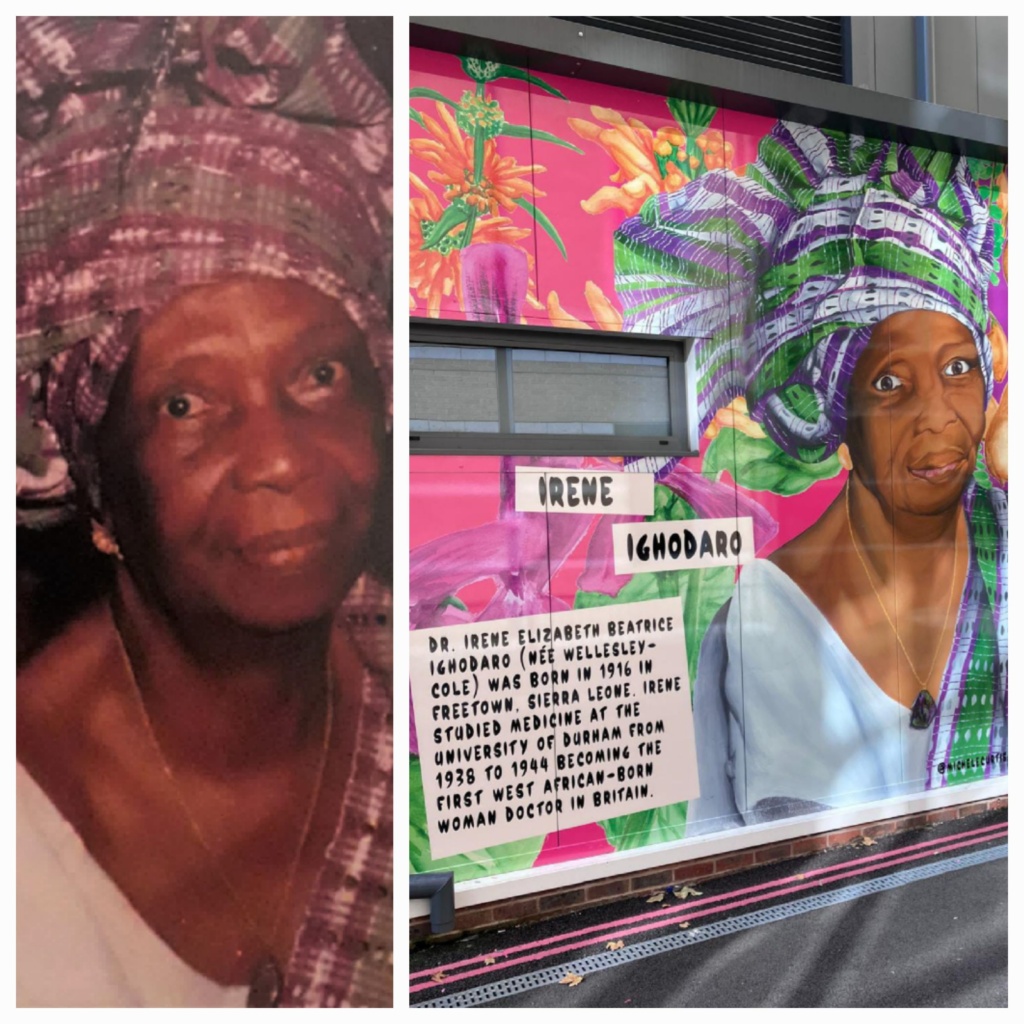
Lauretta Boston
One of the few living Black women who contributed to WW2 is 102 year old Lauretta Boston who was born in the UK in October 1922 to a Sierra Leonean father and a British mother. She grew up with her white British grandmother in Paddington, who taught her to sing and play the piano. In February, 2024, Krio Descendants Union (KDU) Global gave Lauretta Black History Month award, acknowledging her contribution to British Society, especially during WW2.
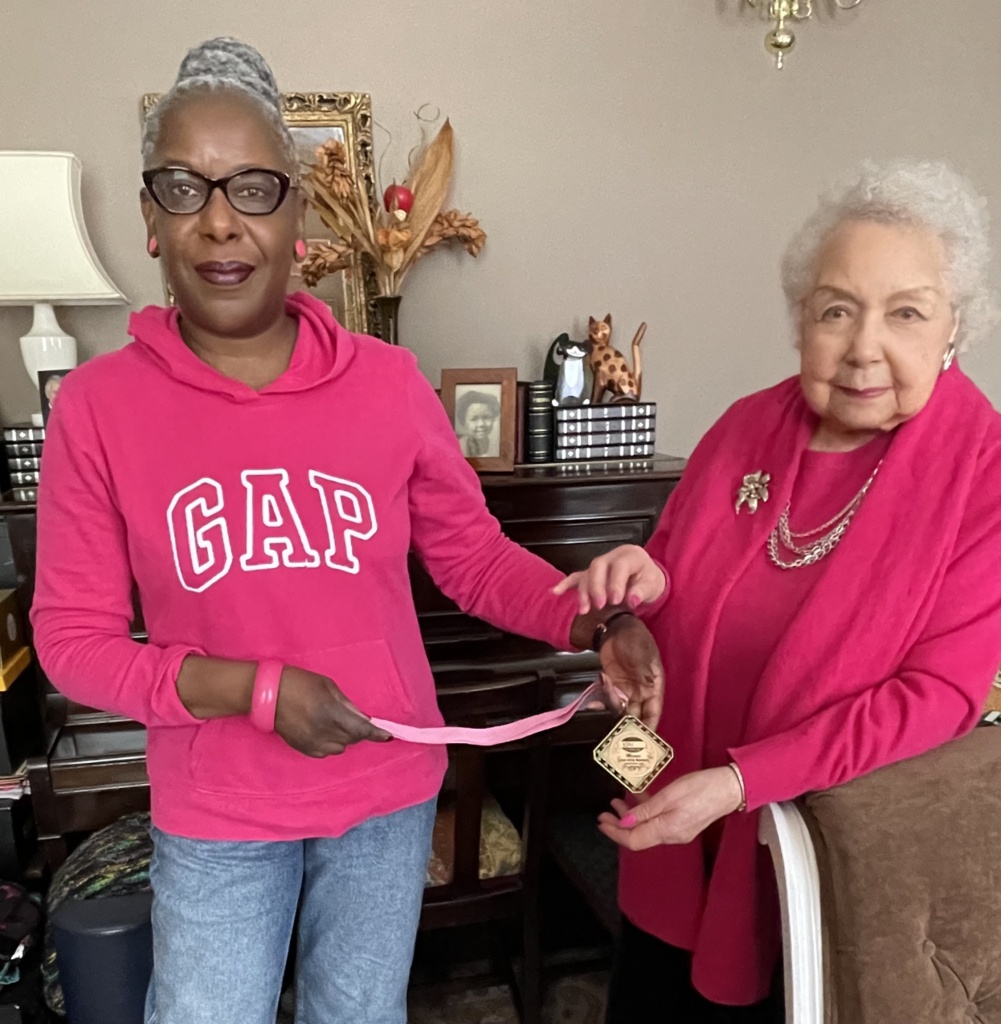
Lauretta’s Tales of World War Two
In 1939, when Lauretta was still in her teens and starting a career in music, the country was thrown into WW2. She joined the Entertainments National Service Association (ENSA) which was formed to entertain the armed forces during the war.
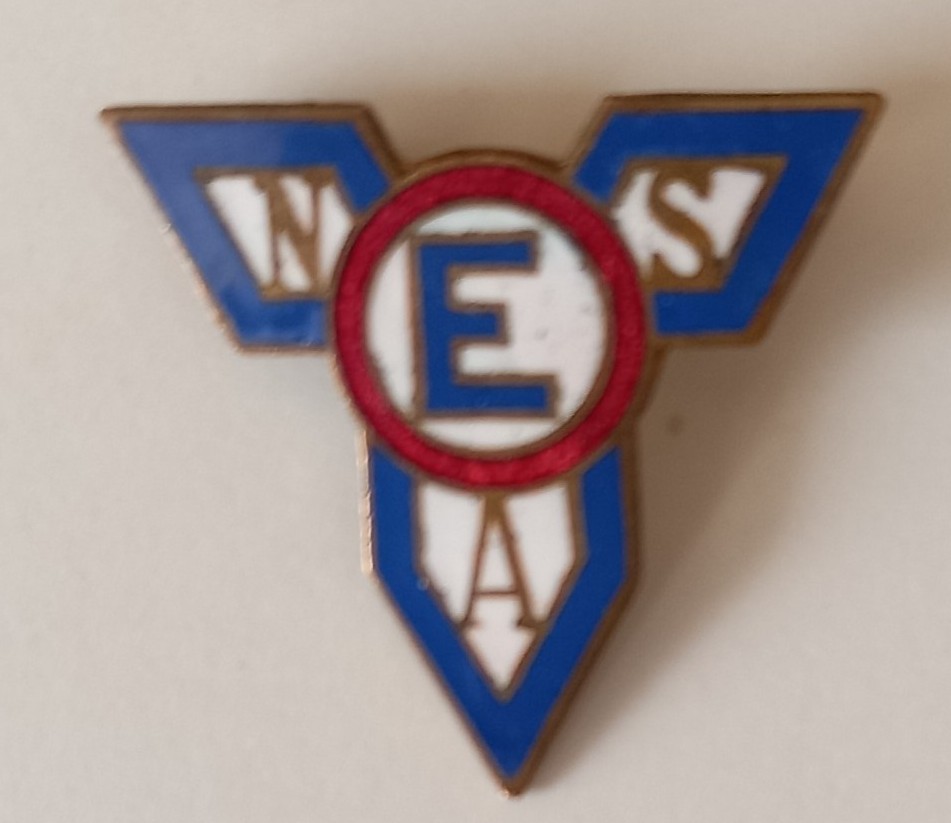
In 1941, at the tender age of 18, she married Rowland, a Nigerian with whom she had two daughters. Lauretta was singing in shows around the country entertaining WW2 servicemen, but her story is not well known, unlike that of ‘British sweetheart’ Dame Vera Lynn. During the Blitz, Lauretta performed at the Dorchester and Mayfair Hotels, after which Rowland would collect her and they would walk home to Swiss Cottage in the blackouts with air raids going on around them! On one occasion, they saw cars on fire in a bombed showroom on Great Portland St and a furniture shop on fire on Tottenham Court Road. The nightly air raids were scary and Lauretta with some humour told me they used to joke that ENSA stood for ‘Each Night Something Awful’!
Lauretta toured with a show called ‘Keep it Dark’, the title reflecting that Britain was at war and undergoing ‘blackouts’. She also sang in the well-known musical ‘Showboat’ and says whilst they were in Birmingham, an enemy plane was shot down and some of the cast took a photo by the wreckage! With some humour, Lauretta said that before going on tour with ‘Showboat’ she had left a suitcase at a friend’s house in London for ‘safe-keeping’ only to come back and find out that her friend’s house had been bombed, the friend was safe but not her suitcase!
Lauretta still has her diary with details of her WW2 tours from over 80 years ago. These included performing to the Royal Air Force in Biggin Hill and the Navy in Southampton and Portsmouth. She also entertained factory workers in Liverpool and Kirby.
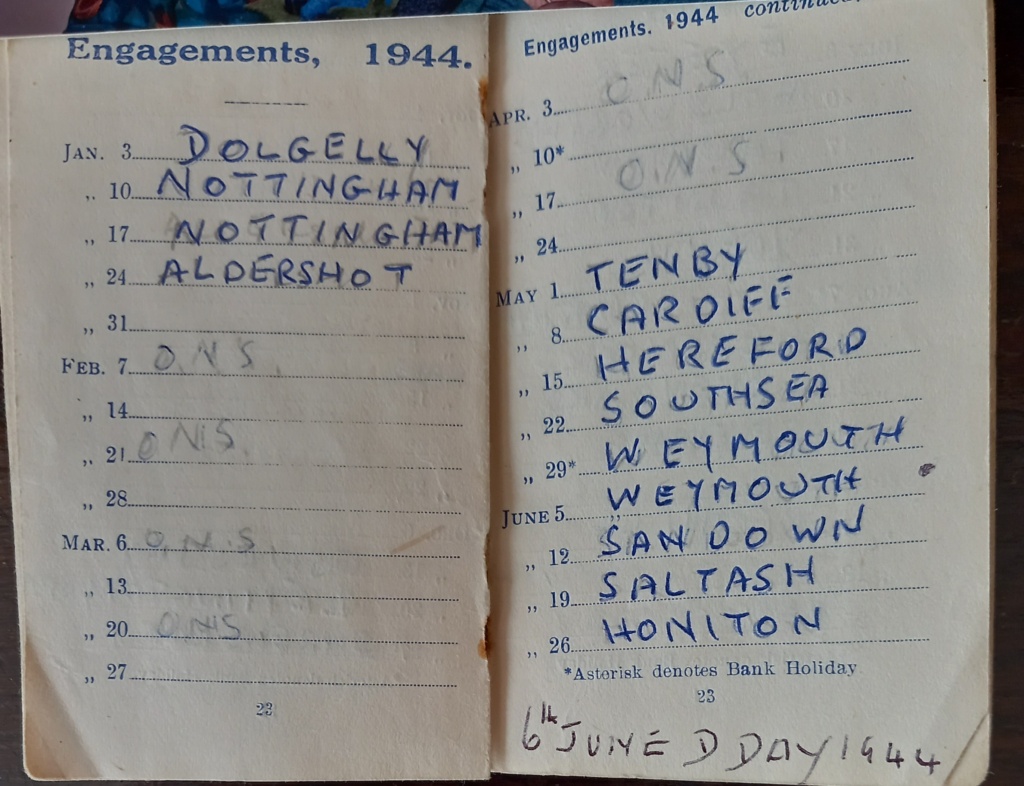
6 June 1944, is known as ‘D-Day’. It is the day that marked the beginning of the Allied effort to liberate France and Western Europe from Nazi Germany and is considered a turning point in WW2. Lauretta was in Weymouth on 6 June and saw troops embark for the D-Day invasion. Many of the troops were part of the US 1st Division who were destined to land on Omaha Beach, France. Lauretta said that when husband Rowland and her were en route to Weymouth they had stopped by a post guarded by a Black American soldier who was amazed at the rare sight of two other Black people! Rowland also subsequently became an entertainer and learnt to do ‘magic’. He briefly had a double-act with Lauretta (his somewhat reluctant magician’s assistant!) in a show he called ‘Black Magic’.

After the war, Lauretta toured Germany and performed for American troops stationed there. She met Calypso King Lord Kitchener who also entertained American soldiers. Lauretta later became the resident singer of the Latin American band at Churchill’s, an upmarket nightclub in Bond St where she met many celebrities.
In addition to the performances Lauretta did as part of ENSA, she regularly took part in a variety of programmes on the BBC. It is therefore pertinent that on Thursday 8 May, Lauretta will appear on the BBC programme ‘VE Day 80: A Celebration to Remember’ that airs on BBC 1 from 8pm, where we can hear more WW2 tales from this amazing centenarian!
The Six Triple Eight
Another largely untold story is that of the 6888th Central Postal Directory Battalion’s contribution to WW2, which I am certain the majority of us knew absolutely nothing about until watching Tyler Perry’s movie ‘The Six Triple Eight’ produced in 2024. The 6888th Central Postal Directory Battalion was a battalion of African – American women already in the US Women’s Army Corps who were sent to Birmingham, United Kingdom in February 1945 to help manage the postal service for the U.S. Army overseas.
These Black unsung heroes helped sort a backlog of over 17 million letters and packages meant for US servicemen stationed in Europe during WW2. Despite facing racism, sexism and gruelling working conditions, they did so in three months rather than the six originally allocated. The Battalion’s motto was ‘no mail, low morale’ and their actions certainly helped boost the morale of the serving soldiers when they received their mail! Three women of the 6888th Central Postal Directory Battalion who were sadly killed in a jeep accident are buried at the Normandy American Cemetery in France and are three of only four women to be buried there, amongst more than nine thousand servicemen.
So, as we continue to celebrate VE Day now and in future, let us always remember these and other Black women who helped in different ways during World War 2.
Acknowledgement
My thanks to Lauretta Boston and Anthony Ighodaro for providing photographs and information for the article.









